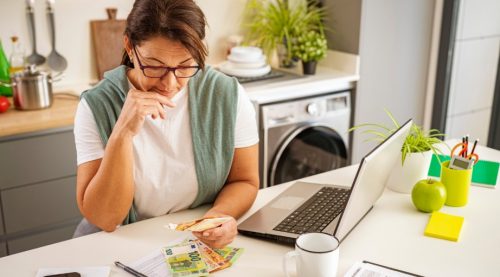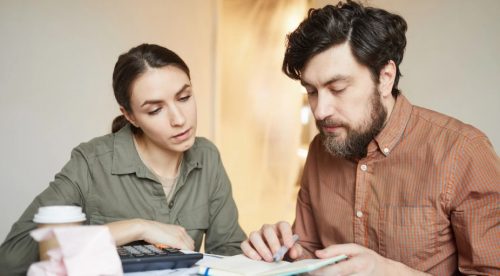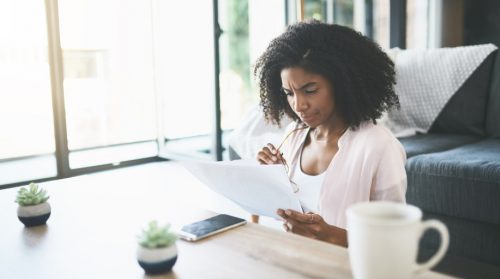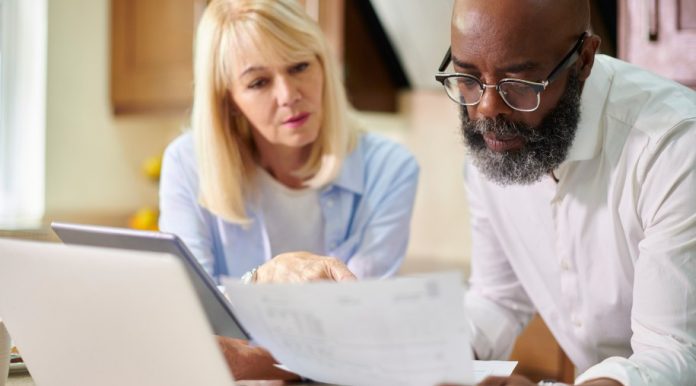As the UK continues to tackle rising inflation, energy costs, and economic uncertainty, the Department for Work and Pensions (DWP) has implemented targeted support to help vulnerable households.
Among the most impactful initiatives are the Cost of Living Payments, designed to offer direct financial assistance to those on low incomes or receiving certain benefits.
But who actually qualifies for these payments? How are they issued? And what should individuals do if they believe they’re eligible but haven’t received theirs?
This guide will help you understand the full scope of DWP Cost of Living Payments eligibility, the criteria for qualifying, and how to take action if you need support.
What Are DWP Cost of Living Payments and Why Are They Important?

DWP Cost of Living Payments are a financial support initiative introduced by the UK Government to help people navigate the increasing pressures of everyday living expenses.
These payments are issued by the Department for Work and Pensions (DWP) to eligible recipients already receiving specific benefits or tax credits.
The economic environment in the UK has seen substantial inflation, rising utility costs, and increased prices for essential goods.
This has disproportionately affected individuals and families on low or fixed incomes, creating a widespread need for targeted government support.
To address this, the DWP implemented a package of payments to alleviate the cost burden, focusing on those who need it the most.
These one-off payments are non-taxable, do not count towards benefit caps, and are made automatically, making them accessible for the majority of eligible claimants without the need for applications.
The significance of these payments lies in their ability to reduce immediate financial stress. By offering predictable financial assistance, the government aims to provide stability and ensure that essential needs—such as heating, food, and housing—can be met even during times of economic hardship.
Who Was Eligible for Cost of Living Payments?
Eligibility for the DWP’s Cost of Living Payments was determined by whether an individual was receiving certain means-tested benefits or working tax credits during defined assessment periods.
The purpose was to ensure support was directed toward households with the greatest financial need.
Means-Tested Benefits That Qualified
Claimants were eligible if they were receiving one or more of the following income-related benefits:
- Universal Credit: Provided to individuals on a low income or out of work. Claimants must have had an assessment period that ended within the qualifying date range.
- Income-based Jobseeker’s Allowance (JSA): Only income-based JSA, not contribution-based JSA, qualified for the payments.
- Income-related Employment and Support Allowance (ESA): As with JSA, only the income-related component made someone eligible, not the contribution-based version.
- Income Support: A benefit for those on a low income who were not required to actively seek work.
- Pension Credit: Available to individuals over State Pension age who were on a low income.
Tax Credits That Qualified
In addition to the above, individuals receiving working or child tax credits from HMRC were eligible under specific conditions:
- Child Tax Credit: If received without Working Tax Credit, eligibility was still maintained.
- Working Tax Credit: Applicable if received with or without Child Tax Credit.
It was important for tax credit claimants to not also receive any of the DWP-administered benefits. Those who received both had their eligibility determined by the DWP.
For each qualifying benefit, eligibility was assessed based on receiving a payment or a successful award for a specific date range (the “qualifying period”). This ensured the government could verify claimants without requiring them to submit additional documentation.
In addition to the general Cost of Living Payments, those who were disabled or pensioners received targeted additional payments.
For instance, recipients of Personal Independence Payment (PIP), Disability Living Allowance (DLA), and Attendance Allowance qualified for a separate Disability Cost of Living Payment.
Similarly, older adults qualifying for Winter Fuel Payment received the Pensioner Cost of Living Payment.
When Were the DWP Cost of Living Payments Made?

The UK Government rolled out a structured series of Cost of Living Payments throughout 2023 and into early 2024. These payments were spaced over several months, each with its own qualifying period to ensure consistency and fairness in distribution.
| Payment Amount | Payment Dates | Eligibility Period |
| £301 | 25 April – 17 May 2023 | 26 January – 25 February 2023 |
| £300 | 31 October – 19 November 2023 | 18 August – 17 September 2023 |
| £299 | 6 February – 22 February 2024 | 13 November – 12 December 2023 |
Each payment was deposited directly into the bank accounts of those eligible. The process was automated, ensuring that claimants did not have to complete any application forms. The eligibility window was strictly tied to being in receipt of the qualifying benefit during the associated period.
The £301 and £300 payments were intended to provide staggered financial support during different times of the year, while the final £299 payment, issued in early 2024, marked the last of the planned instalments for the time being. This final instalment was crucial as it provided additional funds during the winter months when household expenses typically rise due to heating and energy use.
How Do You Know If You Qualify for 2024 DWP Payments?
To determine eligibility for the most recent Cost of Living Payment issued in February 2024, individuals needed to be receiving one of the qualifying benefits during the eligibility period from 13 November to 12 December 2023.
Those uncertain about their status were encouraged to:
- Review their benefits award notice or decision letter: These documents confirm which benefits you’re receiving and whether they’re income-related.
- Check recent payment history: Bank statements showing payments from DWP or HMRC during the qualifying dates could indicate eligibility.
- Contact the appropriate authority: For benefits managed by DWP (e.g., Universal Credit, ESA), individuals could call 0800 169 0310. For HMRC-administered benefits (tax credits), they would need to contact HMRC directly.
In cases where a claimant started receiving a benefit shortly after the qualifying period, they might not have been eligible for that round of payments. However, successful backdated claims (processed within a certain timeframe) may still have qualified.
It’s also important to know whether your specific benefit is contribution-based or income-related, as only income-related versions count towards eligibility. Contribution-based ESA and JSA are typically tied to national insurance contributions and do not fall under the qualifying criteria.
Is There a Cost of Living Payment in 2025?

As of now, the UK Government has not officially confirmed whether Cost of Living Payments will continue into 2025.
The final scheduled instalment under the current support package was the £299 payment issued between 6 February and 22 February 2024.
This marked the conclusion of the multi-part payment plan announced in 2022 as part of a broader effort to support low-income and vulnerable households during a time of economic instability.
Current Government Position
Chancellor statements and Treasury updates have not included definitive announcements on new Cost of Living Payments for 2025.
However, discussions are ongoing within Parliament about the continued impact of inflation, rising energy costs, and food price instability, all of which could prompt further interventions.
Government decisions for future support typically align with the Autumn Statement or the Spring Budget. These financial reviews provide insight into fiscal policy for the coming year, including benefit upratings and any new relief measures.
Until an official announcement is made, any potential 2025 Cost of Living Payment remains speculative.
What Could Influence a 2025 Payment?
Several economic and political factors could lead to the introduction of new support payments:
- Persisting inflation: If inflation continues to outpace wage growth, the government may reintroduce one-off payments to help affected households.
- Energy price volatility: Rising or unstable energy bills could lead to targeted support, similar to the Energy Bills Support Scheme seen in 2022–2023.
- General election pressures: With the next general election likely approaching, political pressure may encourage all major parties to pledge further financial assistance in their manifestos.
- Public demand and advocacy: Charities, advocacy groups, and local authorities are continuing to lobby for more support for those on the lowest incomes.
What Can Claimants Do in the Meantime?
While awaiting a government decision, it’s important for claimants to:
- Stay informed by checking official updates via gov.uk or subscribing to DWP notifications.
- Speak to local councils about emergency assistance through the Household Support Fund, which continues to operate.
- Check eligibility for existing benefits like Pension Credit, Universal Credit, or Disability Benefits, which could still offer financial relief.
If new payments are introduced, eligibility will likely follow similar criteria as in previous years, focusing on means-tested benefits and vulnerable groups such as pensioners and disabled individuals.
What Benefits Might Affect Your Mental Health While Claiming?
For many, navigating the UK benefits system can be a mentally exhausting process. The complexity of forms, the pressure of assessments, and the uncertainty of approval or denial can all contribute to heightened stress levels, anxiety, or depression. This is especially true for individuals already dealing with health conditions or disabilities.
In particular, the following factors may negatively affect a claimant’s mental wellbeing:
- Delays in receiving payments: Waiting for benefit approval or facing technical errors can lead to financial instability.
- Strict requirements for reassessments or medical evaluations: These can be overwhelming for individuals with mental health conditions.
- Difficulty understanding eligibility: The system’s complexity may cause confusion and fear of losing entitlement.
Fortunately, there are support networks available for individuals experiencing these challenges.
Mental Health Support Options
- NHS Mental Health Services: Free counselling or therapy available through your local NHS trust.
- Charities: Organisations like Mind, Rethink Mental Illness, and Scope offer direct support and information.
- Online communities: Platforms like Scope’s Online Community provide peer-to-peer guidance and emotional reassurance.
- Specialist advisors: Citizen’s Advice and similar organisations offer support tailored to individuals whose mental health affects their ability to work.
For individuals whose mental health condition significantly impacts daily life, applying for Personal Independence Payment (PIP) may offer additional financial support. In these cases, the mental health condition must meet the DWP’s criteria, particularly regarding mobility and daily living difficulties.
How Can You Claim Cost of Living Payments from the DWP?

The process for receiving Cost of Living Payments is designed to be straightforward. In most cases, no application is necessary. If a claimant was eligible during the specified assessment period, the payment is issued automatically into their bank account.
However, some circumstances require action:
- Missed or delayed payments: If a person believes they were eligible but did not receive the payment, they should first check their benefit status and bank records.
- Updated personal details: Changes to bank accounts or addresses may prevent a payment from reaching the claimant.
- Complex or disputed claims: If your benefit was under appeal or newly awarded after the qualifying period, you may need to speak to your local Jobcentre Plus or use the DWP’s online missing payment form.
It’s also worth noting that payments are made separately from regular benefit payments and may appear in your bank account under a different reference, often including the term “DWP COL” or a similar label.
The government also recommends keeping a close eye on official DWP communications through the gov.uk website to stay informed about any updates or upcoming support schemes.
What Should You Do If You Are Not Eligible but Still Need Help?
For individuals who do not qualify for Cost of Living Payments but are still struggling financially, alternative support is available. Many local councils and charities offer targeted help that does not rely on receiving a specific benefit.
Other Forms of Support:
- Household Support Fund: A government fund administered by local councils to help households pay for essentials. Applications typically involve proof of low income or financial hardship.
- Warm Home Discount Scheme: Reduces electricity bills for vulnerable people during the winter months. It is automatically applied for eligible pensioners and available by application for others.
- Local Authority Crisis Grants: Emergency financial support for unexpected expenses, often available on a discretionary basis.
- Food banks and food vouchers: Run by charitable organisations like The Trussell Trust.
- Charitable grants: Organisations such as Turn2Us, StepChange, and Family Fund offer one-off or recurring grants to people in crisis.
Even if you are not currently receiving benefits, it’s still worth checking your eligibility using government tools. Many individuals are unaware they qualify for Universal Credit or Pension Credit, which could then open the door to future Cost of Living Payments.
Conclusion
The Cost of Living Payments from the DWP have been a lifeline for millions of UK residents during challenging economic times. Knowing whether you qualify—and understanding how to claim—can make a real difference in your financial wellbeing.
If you’re unsure whether you’re eligible, don’t wait. Review your benefit statements, check your payment history, and reach out to trusted sources for help.
Support is available. And taking the first step to understand your eligibility might be what opens the door to the assistance you need.
FAQs About DWP Cost of Living Payments
What’s the difference between Universal Credit and ESA eligibility for DWP payments?
Universal Credit is a more modern benefit that often replaces legacy benefits like income-related ESA. Only income-related ESA (not contribution-based) qualifies for Cost of Living Payments, while all standard UC recipients are eligible if they met the qualifying period.
Can I still get a payment if I missed a qualifying period?
No, you must have been in receipt of the qualifying benefit during the specified assessment period for each payment. However, backdated claims may apply in some circumstances if processed in time.
How can pensioners claim their Cost of Living Payment?
Pensioners receive a separate payment, usually alongside the Winter Fuel Payment. Most are issued automatically if the claimant is over State Pension age and receiving Pension Credit.
What should I do if I didn’t receive a payment I was eligible for?
Check your benefit status and contact DWP using their missing payment form or by calling their helpline. Errors can be resolved if eligibility is confirmed.
Are there Cost of Living Payments planned for late 2024?
As of now, the £299 February 2024 payment is the final scheduled instalment. Future support may depend on the government’s fiscal plans and economic conditions.
Is mental health considered in benefit eligibility assessments?
Yes. If a mental health condition significantly affects your daily activities or work capacity, it may qualify you for additional support through PIP or ESA.
Can I claim support if I’m on low income but not receiving benefits?
You may qualify for local council assistance, charity grants, or the Household Support Fund. Consider applying for Universal Credit or other eligible benefits as well.



































